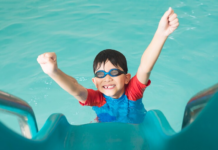Introduction:
The Kashmir Great Lakes trek is a popular trekking destination located in the Indian state of Jammu and Kashmir. It is a moderate trek that takes around seven days to complete and covers a distance of around 63 kilometers. The trek takes you through some of the most beautiful and serene lakes in the Himalayas, offering breathtaking views of the mountains and the valleys. In this article, we will discuss all you need to know about the Kashmir Great Lakes trek.
When to go:
The best time to go for the Kashmir Great Lakes trek is from July to September. During this time, the weather is pleasant, and the snow has melted, making it easier to trek. The temperature during the day is around 15-20 degrees Celsius, and during the night, it can drop to around 5-10 degrees Celsius. It is important to note that the weather can be unpredictable, and it is advisable to carry warm clothing and rain gear.
How to reach:
The base camp for the Kashmir Great Lakes trek is located in Sonamarg, which is around 80 kilometers from Srinagar. Srinagar is well connected to major cities in India by air, road, and rail. From Srinagar, you can hire a taxi or take a bus to reach Sonamarg. It is advisable to book a taxi in advance to avoid any last-minute hassle.
Difficulty level:
The Kashmir Great Lakes trek is a moderate trek, and it is suitable for anyone who is physically fit and has some prior trekking experience. The trek involves walking for around 6-7 hours a day, and there are some steep ascents and descents along the way. It is advisable to engage in regular physical activity and endurance training before the trek to prepare for the trek. It is also important to carry appropriate trekking gear such as sturdy shoes, warm clothing, a good quality sleeping bag, and a backpack.
Permit:
To undertake the Kashmir Great Lakes trek, you need to obtain a permit from the local authorities. The permit can be obtained from the Forest Department Office in Srinagar or Sonamarg. It is advisable to carry a valid ID proof and a passport size photograph while applying for the permit. The permit fee varies depending on the number of days of the trek.
Route:
The Kashmir Great Lakes trek starts from the base camp in Sonamarg and takes you through several beautiful villages, forests, and meadows. The trek covers a distance of around 63 kilometers and passes through several high-altitude lakes such as Vishansar Lake, Gadsar Lake, and Tarsar Lake. The route is as follows:
Day 1: Sonamarg to Nichnai Valley (11 km, 6-7 hours)
Day 2: Nichnai Valley to Vishansar Lake (12 km, 6-7 hours)
Day 3: Vishansar Lake to Gadsar Lake via Gadsar Pass (10 km, 6-7 hours)
Day 4: Gadsar Lake to Tarsar Lake (12 km, 6-7 hours)
Day 5: Tarsar Lake to Sheeshnag Lake (9 km, 5-6 hours)
Day 6: Sheeshnag Lake to Gangbal Lake (11 km, 6-7 hours)
Day 7: Gangbal Lake to Naranag (14 km, 7-8 hours)
Accommodation:
During the trek, you will be camping in tents. The tents will be provided by the trek organizers, and they will also arrange for a cook and a guide. The campsites are located in beautiful locations, and the tents are comfortable and equipped with basic amenities. It is advisable to carry a good quality sleeping bag and a camping mat for a comfortable night’s sleep. There are no proper toilet facilities along the trek, and you will have to use the outdoors. It is important to carry a small trowel and toilet paper for this purpose.
Food:
The trek organizers will provide all meals during the trek. The meals will be simple and nutritious and will include vegetarian and non-vegetarian options. It is important to inform the organizers in advance if you have any dietary restrictions or food allergies.
Water:
It is important to stay hydrated during the trek. You can refill your water bottles at the streams and springs along the way. It is important to carry a water purifier or water purification tablets to ensure that the water is safe to drink.
Guides and porters:
It is advisable to hire a local guide and porter for the Kashmir Great Lakes trek. The guide will help you navigate the trail and provide valuable insights into the local culture and customs. The porter will carry your backpack, camping gear, and food supplies, allowing you to trek without any burden.
Safety precautions:
The Kashmir Great Lakes trek is a high-altitude trek, and it is important to take adequate safety precautions. It is advisable to acclimatize properly before starting the trek. It is also important to carry a basic first aid kit and any necessary medication. It is important to stay hydrated and avoid consuming alcohol or smoking during the trek. It is important to follow the trekking rules and regulations set by the local authorities and respect the local culture and customs.
conclusion
In conclusion, the Kashmir Great Lakes trek is a must-visit for anyone who loves trekking and adventure. It offers a unique opportunity to experience the beauty of nature and connect with the locals who live in the villages along the trail. The trek is a moderate trek and requires proper preparation and planning before embarking on the journey. However, the effort is worth it, and the experience is one that will stay with you for a lifetime. It is important to follow the safety precautions and respect the local culture and customs while undertaking the trek. With its stunning lakes and scenic views, the Kashmir Great Lakes trek is truly a slice of heaven on earth.




